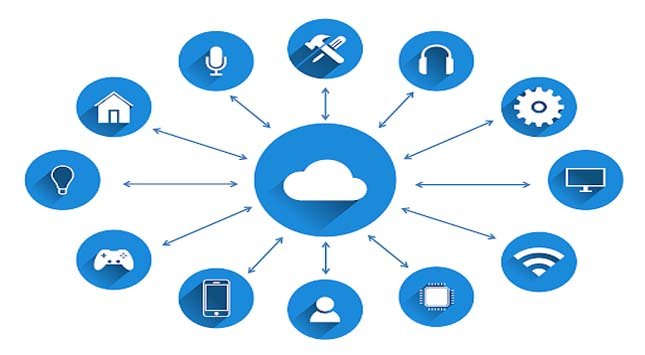Moving your business operations online has both pros and cons that you need to decide for yourself whether or not it’s worth it in the long run.
Some businesses, such as successful brick and mortar shops, may not have to move their business online because they’re already successful offline.
Other businesses, such as law firms, may benefit from moving to a more digitally-driven environment. Let’s discuss the pros and cons of moving everything online.
Pros of Moving Everything Online
Flexibility
Moving your business online improves flexibility, which means that scaling will be easier. For example, if your business is a law firm that specializes in Will and Testaments, you can create a more flexible experience for your clients by allowing them to create a will online.
With the right software, you can create a will-builder that allows your clients to answer questions and builds them a will without having to speak to a lawyer.
Remember, though, some individuals might have questions, so it would be beneficial to add a chatbot to the website so that they can have their questions answered in a timely manner.
Accessibility
When you move your business online, you’ll improve accessibility for your potential clients and customers. Unlike physical locations, your business doesn’t have to be restricted by geographical location. Instead, you can provide products and services to customers around the world without leaving the office.
Affordability
Moving everything online is cheap. You’ll only need to pay for the internet and the software you use to keep your business running at lower costs.
Increased Productivity and Efficiency
Moving your workforce, or at least some of your teams online, can increase collaboration. Instead of requiring your employees to walk around the office to speak with the people that they’re collaborating with, they can meet online and chat via Slack to improve productivity and efficiency.
More Space
If you keep your office and move important files to the cloud, you’ll save yourself space. Instead of keeping hard copies of files in spare offices, you can keep them safely in the cloud and have a cloud backup solution in place so that you never misplace another file and can keep your office free of junk.
Saves Money
At the end of the day, moving everything online can save you money if you do it right. Moving everything online might be more affordable for some businesses. Instead of the need to rent office space for tens of thousands of dollars a month, you can save money by having a fully remote workforce. This is ideal if you provide services to clients around the country. Thanks to web conferencing software like Zoom, you don’t need to meet your clients in person to provide them with quality services.
Not only that, but if you’re storing data onsight and also have an IT infrastructure, you’re likely consuming more power than you need to. By moving everyone online and into the cloud, you’ll require fewer resources to keep your business running efficiently, helping you to save energy and on energy bills. When you discard your servers, the overall infrastructure can be scaled down so that you can free up resources that need to consume more power.
Scalability
By moving online, you’ll have unlimited potential for scalability. You only have to pay for the applications and storage that you’re using in the cloud so that you can scale your cloud workspace up or down to meet your IT demands month after month.
Cons of Moving Everything Online
Learning Curve
If you’ve been doing things the same way for a long time, you may find that moving your business online carries a learning curve. You may have to learn new software and applications that can help scale your business.
Takes Time
Because you’ll have to learn about the new processes, you’ll spend more time away from your daily duties, which can temporarily decrease productivity. However, the time you spend learning how these new business processes work can help you increase productivity exponentially.
Potential Security Vulnerability

Without the right security solution in place, you’ll be potentially vulnerable to cyber-attacks and human error. This can be mitigated by looking for security solutions that fit your business’ needs. Cyber attacks don’t discriminate when it comes to which businesses will be targeted.
Their goal is to steal information from your company, whether it’s customer credit card information or your proprietary secrets. Any business can fall victim to a cyberattack, which can hurt your customers and damage your reputation.
While you may not expect cyber attacks every day, you can expect some level of human error from your employees.
If your employee accidentally deletes important data from the cloud, you may not be able to recover it. Cloud service providers typically do not recover your data, but they may provide you with 30 days to recover it yourself. If you do not, however, that data could be lost forever. This risk can be mitigated by having a cloud backup solution in place so that you never risk losing important company, customer, or employee data.
Dependent on Internet Connection
Moving everything online means that you’ll require a constant internet connection. If the internet goes down, you’ll be at its mercy until it comes back up. Luckily, you can ask that your employees work in cloud-based solutions like Google Drive so that their work is saved after each change so that in the event you do lose your internet connection, you won’t also lose work.
If your business operates in an area that doesn’t have reliable internet, then moving everything online may hinder your business instead of helping it.
Should You Move Everything Online?
Weigh these pros and cons to see if your business could benefit from moving online. If you’re not sure whether or not moving online will make your employees more productive and your business more efficient, talk to an IT services provider about how they can help you.
Let them know about your goals and the technology you currently use so that they can come up with the best solution that helps your business grow.


